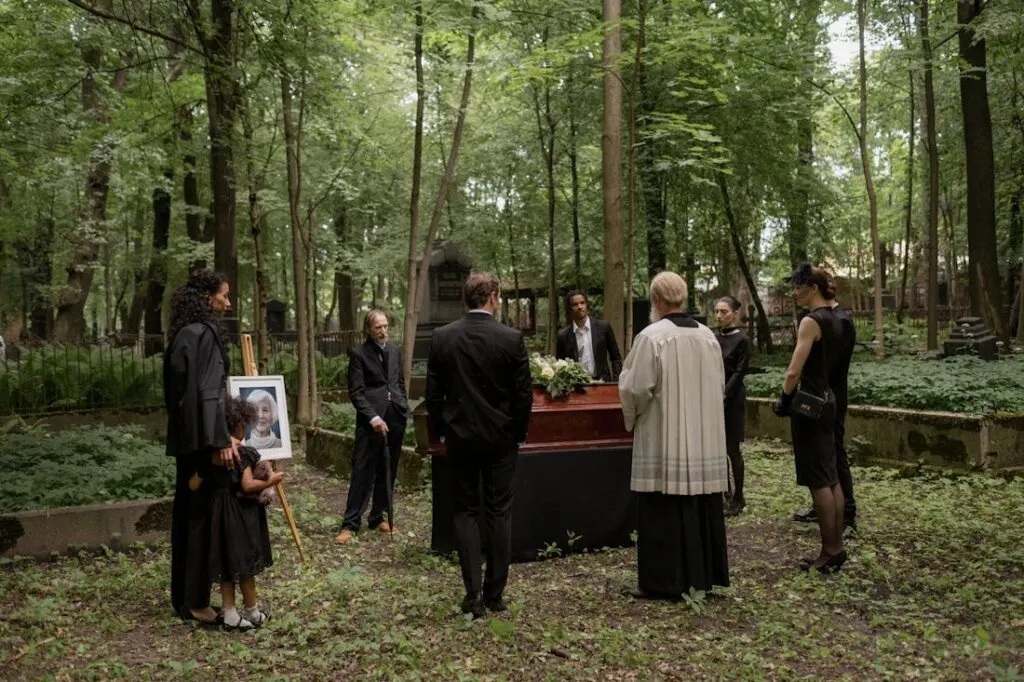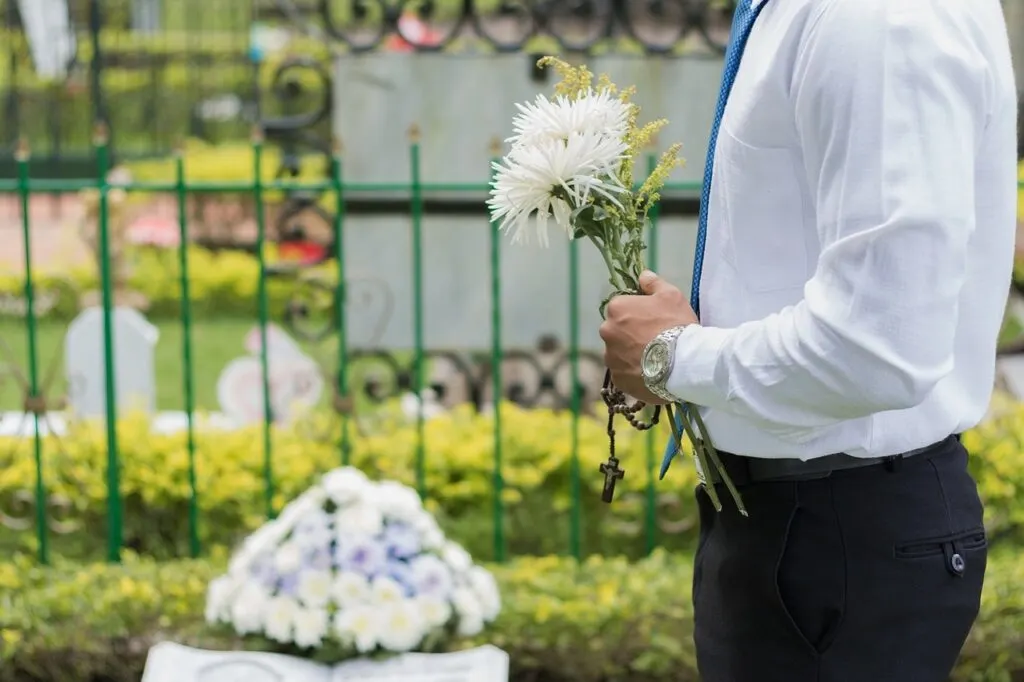Losing a loved one is an inevitable part of life, and the grieving process can be incredibly difficult and challenging. However, many find comfort in funeral traditions that honor the deceased and provide a sense of closure. Today we will explore various funeral traditions worldwide and how they can help you navigate the grieving process.
Understanding the Importance of Funeral Traditions
Funeral traditions have been a part of human culture for centuries, serving to honor the deceased, support the grieving, and help the living and the dead transition to a new phase. These traditions often vary widely based on cultural, religious, and personal beliefs. Still, they all share a common goal: celebrating the deceased’s life and offering comfort to those left behind.

The reputable funeral, cremation, and memorial service provider behind SanJacinto Funerals recommends opting for a service that captures the essence of the deceased’s life and provides a meaningful experience for the grieving family and friends. They emphasize the importance of personalization, encouraging families to incorporate unique elements that reflect the personality, interests, and values of their loved one.
1. Western Funeral Traditions
In many Western cultures, funerals are often somber affairs, with black clothing and subdued tones prevailing. Typically there is a visitation or wake, where friends and family gather to pay their respects to the deceased and offer condolences to the grieving family. This is usually followed by a funeral service, which may occur in a church, funeral home, or other venue and includes readings, prayers, and eulogies.
After the funeral service, there is often a burial or cremation, where the body is laid to rest or cremated according to the deceased’s wishes. This is typically followed by a reception or gathering, where mourners can share memories and stories and support each other through grieving.
2. Asian Funeral Traditions
Asian funeral traditions vary widely depending on the country and religious beliefs. In many Asian cultures, white is the color of mourning, and funerals are often elaborate affairs that can last several days. Family members may wear white clothing and participate in rituals such as chanting prayers and offerings to honor the deceased.
In some Asian cultures, such as in China and Japan, there is a strong emphasis on ancestor veneration, and funerals may include rituals to ensure the deceased’s smooth transition to the afterlife. These rituals often involve offerings of food, drink, and other items, as well as prayers and ceremonies led by Buddhist or Taoist priests.
3. African Funeral Traditions
Funeral traditions in Africa are as diverse as the continent, with each culture and ethnic group having unique customs and rituals. In many African cultures, funerals are seen as a way to celebrate the deceased’s life and ensure their safe passage to the afterlife.
In some African cultures, such as Ghana, funerals are elaborate affairs that can last several days, including music, dancing, and feasting. Family members may also wear unique clothing or jewelry to honor the deceased and show their respect.
4. Indigenous Funeral Traditions
Indigenous cultures worldwide also have unique funeral traditions that reflect their beliefs and values. In many Indigenous cultures, death is seen as a natural part of the life cycle, and funerals are often seen as a way to celebrate the deceased’s life and honor their memory.
In some Indigenous cultures, such as among the Maori of New Zealand, funerals may include traditional dances, songs, and ceremonies meant to guide the deceased’s spirit to the afterlife. These rituals often involve the entire community coming together to support the grieving family and pay their respects to the deceased.
Additional Funeral Traditions to Consider
In addition to the cultural and religious funeral traditions mentioned above, there are several other practices from around the world that you might find meaningful as you plan your loved one’s funeral and begin navigating the stages of grief.
- Irish Wake: Originating from Ireland, the Irish wake is a tradition where friends and family gather to remember the deceased with stories, music, food, and drinks. It’s a celebration of the person’s life and an opportunity for loved ones to find comfort in each other’s company.
- New Orleans Jazz Funeral: In New Orleans and other parts of Louisiana, jazz funerals uniquely honor the deceased. The procession begins with somber music as mourners accompany the casket to the burial site. After the burial, the mood shifts to lively jazz music, celebrating the departed’s life.
- Hawaiian Paddle Out: In Hawaiian culture, a paddle-out ceremony traditionally honors surfers or ocean enthusiasts who have passed away. Friends and family gather on surfboards or boats, forming a circle in the ocean. They paddle together, share memories, and toss flowers into the water as a tribute to the deceased.
- Tibetan Sky Burial: While unconventional in many Western cultures, Tibetan sky burials are a sacred ritual where the deceased’s body is placed on a mountaintop to be exposed to the elements and wildlife. This practice aligns with Tibetan Buddhist beliefs about impermanence and the cycle of life and death.
- Mexican Day of the Dead: Celebrated November 1st and 2nd, Dia de los Muertos is a vibrant Mexican tradition where families honor their deceased loved ones. Altars, or ofrendas, are adorned with photos, candles, marigolds, and the favorite foods and beverages of the departed. Families visit cemeteries to clean and decorate graves, enjoying music, food, and festivities as they remember their ancestors.
- Ghanaian Fantasy Coffins: In Ghana, fantasy coffins are intricately designed to reflect the profession, hobby, or personality of the deceased. These colorful coffins can be animals, vehicles, fruits, or even everyday objects, serving as a personalized tribute to the person’s life.

Finding Comfort in Funeral Traditions
No matter what your cultural or religious background may be, funeral traditions can provide a sense of comfort and closure during a difficult time. By honoring your loved one’s life and sharing memories with others, you can begin to come to terms with your loss and find comfort in the support of friends and family.
If you are planning a funeral for a loved one, consider incorporating some of these traditions into the service to help honor their memory and comfort those grieving. Whether you follow traditional funeral traditions or create your unique tribute, the most important thing is to find a way to honor the deceased’s memory and find comfort in the love and support of those around you.
In Conclusion
Funeral traditions can provide comfort and solace during a difficult time. By honoring your loved one’s life and sharing memories with others, you can find strength and support you need as you go through the grieving process.
